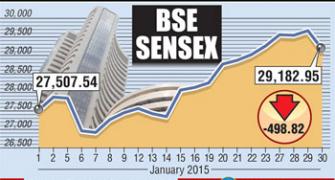Coal India OFS aims to sell 63 mn shares, 12.6 mn of those to retail investors
.jpg?w=670&h=900)
The government on Thursday set a floor price, the base at which investors can bid, for the Coal India offer for sale (OFS) at Rs 358 a share, compared with the day’s BSE closing price of Rs 375.
Of the 630 million shares on the block, 126 million (worth Rs 4,500 crore) will be reserved for retail investors. Like most government share sales, an additional five per cent discount is on offer for retail investors. Here is retail investors’ guide for investing in the mega offering:
What is an OFS?
OFS is a relatively new mechanism, meant for promoters of listed firms to dilute their holdings. The seller — in this case the government of India — uses a separate one-day window provided by stock exchanges for selling the stake. This is different from an IPO or follow-on public offering (FPO), as it does not use the stock exchange mechanism for share sale.
Who is a retail investor?
Someone investing up to Rs 200,000 in an OFS is considered a ‘retail’ investor.
What are the benefits of investing in the retail category?
About 20 per cent of the issue is reserved for retail investors. No other category of investors has a special quota or reservation. The bigger benefit of investing as a retail investor is that the government offers an additional discount of five per cent. So, for instance, if the Coal India shares are sold at a base price of Rs 358, retail investors will be sold these for Rs 340.
How should a retail investor apply?
Unlike non-institutional investors, retail ones do not have the option of applying on a margin. The entire application amount has to be paid upfront. An investor applying in the OFS, needs the funds ready in his or her bank before calling a broker. So, for placing a bid, an investor has to call the broker during market hours (9:15 am to 3:30 pm) and state the quantity and the price.
At what price should the investor bid?
Retail investor will have to bid at the floor price or above. The allotment will be done on a price-priority basis, which means those bidding with a higher amount have a greater chance of getting allotment. However, given the large quantity on offer, those applying even at the base price might get allotment. Importantly, a discount is applied to the cut-off or allotment price. Retail investors have to make bids at the floor price or more, as the discount is applied later.
How will retail investors know the bidding price trends?
Exchanges will disclose an ‘indicative price’ — which is the volume-weighted average price of all valid bids — at frequent intervals. They will also disclose the subscription figures, which will give an indication of the demand.
When will the allotment happen?
The allotment of shares in an OFS for retail investors and all others bidding with 100 per cent margin happens on a T+1 basis. This means, if the application is successful, the shares should appear in investors’ accounts on Monday.










